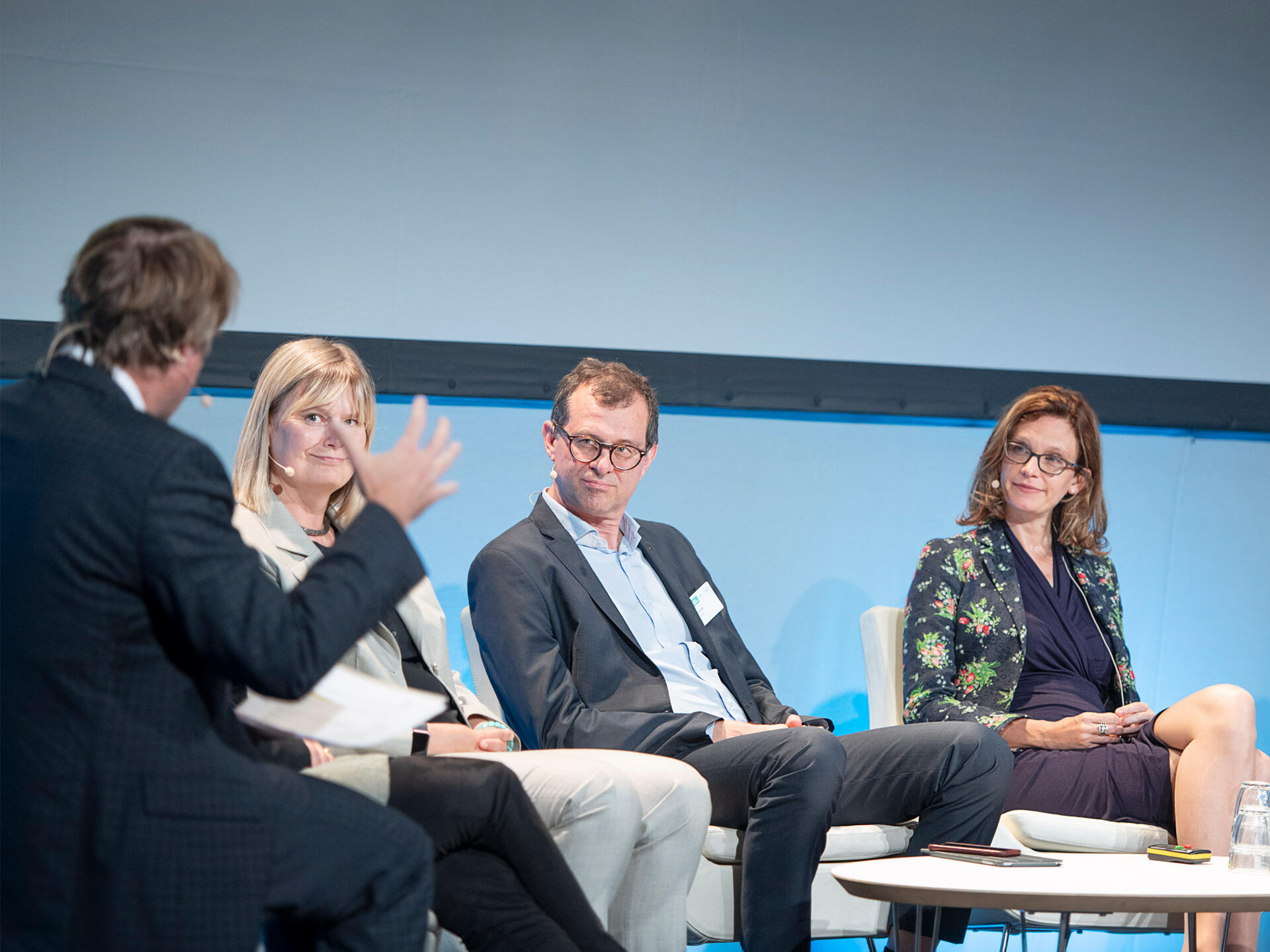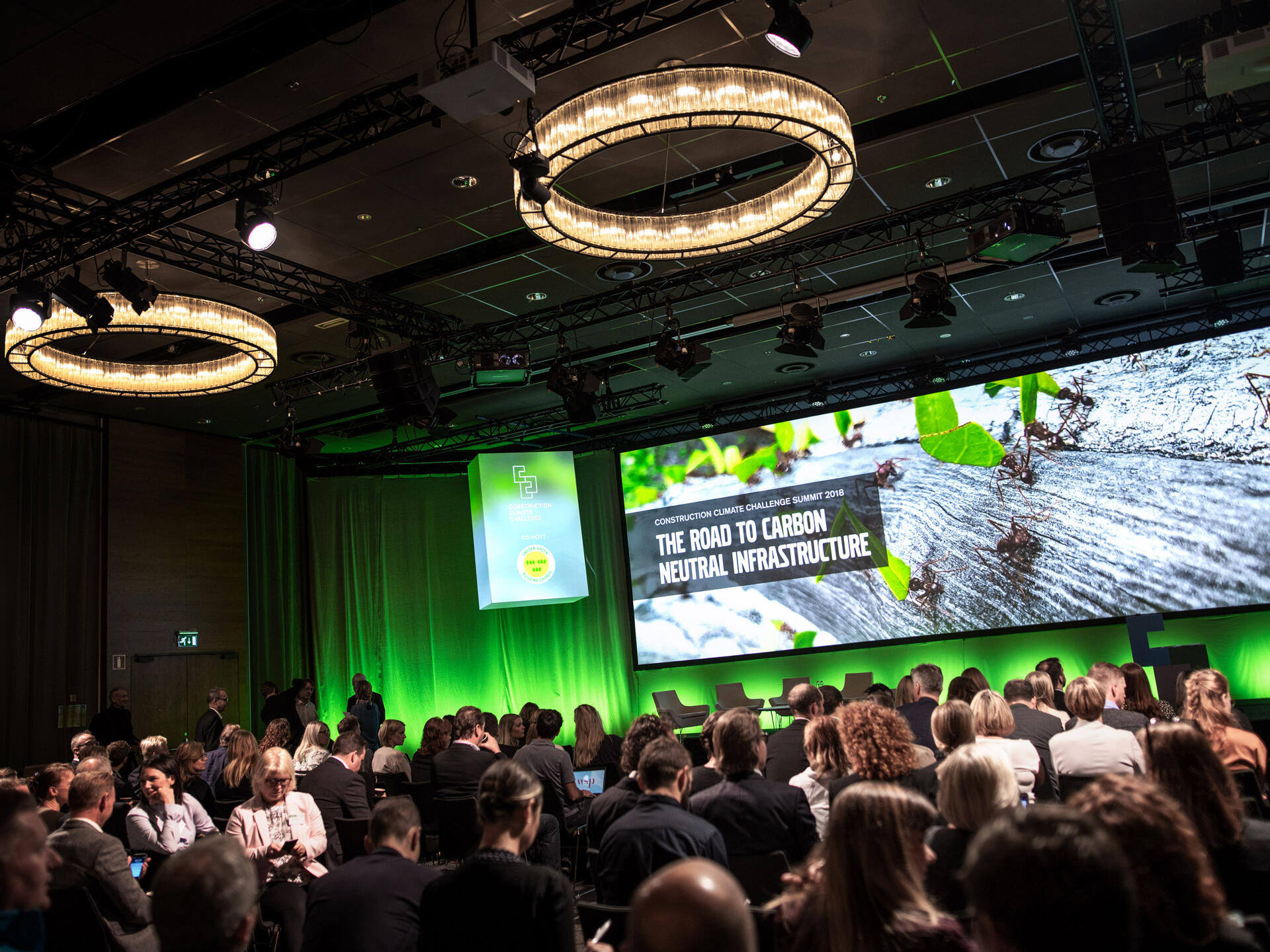The Construction Climate Challenge Summit: The Road To Carbon Neutral Infrastructure

Terri Wills, CEO of World Green Building Council, who spoke at the event, said: “We have a real issue with climate change and we all have a responsibility. While operational emissions are starting to go down thanks to a range of innovative solutions, the bad news is that emissions from building and construction is now going up and it’s a global issue. We need to not only work on solutions ourselves but convince the rest of the world.”
Independent environment expert Dr Paul Toyne, who moderated the summit added: “CO2 concentrations are the highest they’ve ever been. If we are to tackle the catastrophic impact of climate change we are looking at the huge challenge of reducing CO2 by 14 to 19 gigatons a year. We need to rethink our systems, have new approaches to design and employ innovations in material science.”
Momentum is already growing across Europe. Sweden´s new Climate Act came into force 1 January 2018 joining other countries, such as the United Kingdom, who have been pioneering their own Climate Acts. The new Act will impact on all sectors of society, including the building and infrastructure sectors. Within these sectors several initiatives are under way and more will come to manage carbon emissions. The ultimate goal of the summit is carbon neutrality.

As well as frameworks like this, the need to engage across the supply chain, set up financial incentives, push for green design and look for innovative construction models, such as reusing material and building off-site, were highlighted as potential solutions.

Other speakers on the day also included industry heavyweights representing both the client’s and the supply chain perspective from Anglian Water, Costain and Arup to the Swedish Transport Administration and Rijkwaterstaat in the Netherlands. Additionally, academics such as Professor Anna Kadefors of Royal Institute of Technology in Stockholm and Dr Matthew Brander of the University of Edinburgh Business School also addressed the summit.

Thomas Bitter, Senior Vice President of Marketing and Product Portfolio, at Volvo Construction Equipment, said: “We need to explore new ways of working if we are to take industry-wide action that tackles GHG emissions in infrastructure – not only for us but for future generations. This summit was a unique opportunity to come up with real solutions and not just words. Growing investment in infrastructure offers the chance to create a global framework for a more sustainable tomorrow.”
Image 2: Agneta Wannerström, Skanska Sweden
Image 3: (from left to right) Moderator Dr Paul Toyne, Christina Lindbäck, NCC Group, Mats Landén, WWF Sweden, and Terri Wills, WorldGBC
Image 4: Audience gathers for the CCC Summit
Downloads
FOR FURTHER INFORMATION
Tiffany Cheng
Head of Brand, Marketing and Corporate Communication
Regions Asia and China
Volvo Construction Equipment
E-mail: tiffany.cheng@volvo.com
Åsa Alström
Head of Strategic Communications
Volvo Construction Equipment
E-mail: asa.alstrom@volvo.com